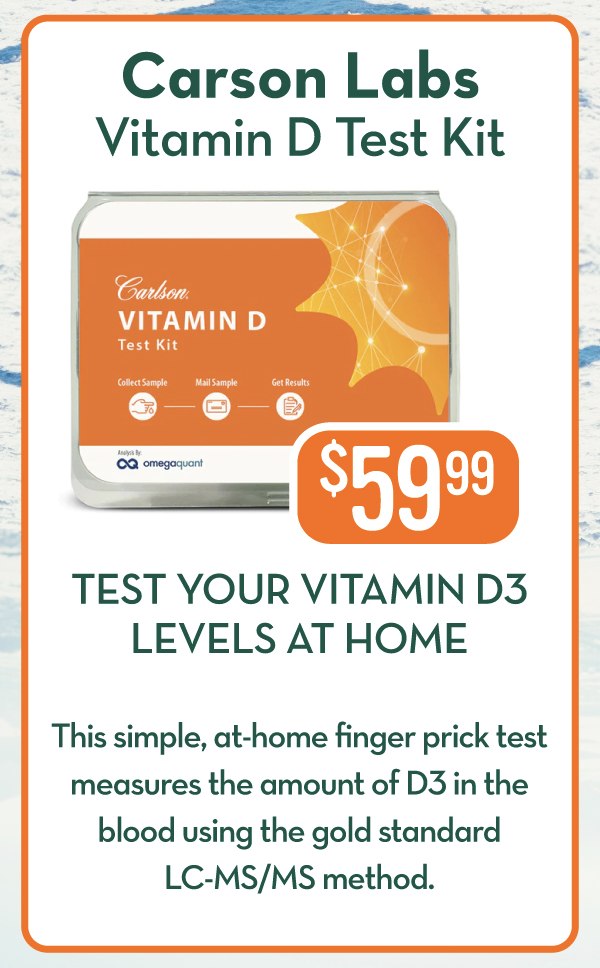Understanding Vitamin D with Dr. Jessica Stadtmauer, ND
 We’ve been asked a lot about Vitamin D lately. What are the benefits? How much do I take? How do I know if I’m getting enough? So, we consulted an expert! Dr. Jessica Stadtmauer breaks it down for us:
We’ve been asked a lot about Vitamin D lately. What are the benefits? How much do I take? How do I know if I’m getting enough? So, we consulted an expert! Dr. Jessica Stadtmauer breaks it down for us:
Health Benefits:
–There is a lot of research looking at the health benefits of vitamin D and not all studies agree.
–Vitamin D deficiency may play a role in risk or severity of: Autoimmune diseases like Multiple Sclerosis (MS), Rheumatoid Arthritis (RA) or Type 1 Diabetes, Cancers such as Breast and Colon Cancer, Heart Disease and Depression.
–Vitamin D supports the building and maintenance of healthy bones over our lifetimes.
–Low levels of vitamin D are associated in some studies with worse outcomes for people suffering from viral respiratory diseases like influenza or Sars-CoV-2. Supplementing to achieve optimal levels during the winter months may be protective in preventing more severe outcomes associated with these viruses.
There is no standard, commonly agreed upon reference range for vitamin D, but according to several standards, optimal vitamin D levels fall between 30-60 ng/mL. Higher levels may be suggested by your provider if you have certain chronic conditions such as diabetes, autoimmune disease or cancer.
The RDA for vitamin D is:
–400 IU in infants 0-12 months
–600 IU for people ages 1-70
–800 IU for people 70+
However, in Vermont and New York, these levels are not high enough to achieve or maintain serum levels between 30-60 ng/mL. This is especially the case in the fall, winter and spring months, if you spend most of your time indoors, have darker pigmented skin or health conditions that impact your ability to absorb vitamin D.
The Linus Pauling institute recommends that generally healthy adults take 2000 IU of vitamin D daily. The Endocrine Society and the Linus Pauling institute recommend 400-1000 IU of vitamin D per day in infants and 600-1000 IU in children and adolescents.
If your test results show levels below the optimal range, taking more vitamin D can help.
Tolerable daily upper limits of vitamin D supplementation are:
Birth to 6 months 25 mcg (1,000 IU)
Infants 7–12 months 38 mcg (1,500 IU)
Children 1–3 years 63 mcg (2,500 IU)
Children 4–8 years 75 mcg (3,000 IU)
Children 9–18 years 100 mcg (4,000 IU)
Adults 19 years and older 100 mcg (4,000 IU)
Pregnant and breastfeeding teens and women 100 mcg (4,000 IU)
While these upper limits are generally regarded as safe, long term supplementation at these or higher levels can lead to excessive vitamin D.
Repeating your vitamin D after a couple of months can help you and your provider determine if higher or lower doses are needed to achieve and maintain optimal levels.
Vitamin D is generally regarded as safe to take in the doses listed above. It is possible, however, to take too much. Excessive supplementation (when blood levels exceed 150 mg/ml) leads to elevated levels of calcium in the bloodstream and urine. This, in turn, can lead to nausea, vomiting, muscle weakness, neuropsychiatric disturbances, pain, loss of appetite, dehydration, polyuria, excessive thirst, and kidney stones. Having adequate levels of vitamin D is important. If you’re taking higher doses of vitamin D, testing your levels every 2-4 months is an important way of knowing if your dose is sufficient or excessive.
Vitamin D supplements can interact with certain medications such as statin drugs, corticosteroids and certain types of diuretics. It’s important to check with your doctor if you are taking any of these medications before you supplement above the recommended daily allowance (RDA).
Test your Vitamin D Levels at Home: Carson Labs Vitamin D Test Kit now available in-store or on HL2Go
 About Jessica Stadtmauer, ND
About Jessica Stadtmauer, ND
Dr. Jessica Stadtmauer is a 2002 graduate of the National College in Natural Medicine. She began her practice in Charlotte, North Carolina where she focused on functional medicine in women’s health and pediatrics. Since moving to Vermont in 2010, she has expanded her practice to include primary care and has developed a passion for integrative medicine and naturopathic primary care. She provides both specialty and primary care services for children and adults.
Dr. Stadtmauer is a member of the Vermont Association of Naturopathic Physicians, the American Association of Naturopathic Medicine and the Pediatric Association of Naturopathic Physicians. She is a committee member of the University of Vermont Institute for Health and Healing. She has completed the National Center for Integrative Primary Health Program in Integrative Health. Dr. Stadtmauer has a passion for education and has lectured in the Burlington area to both clinicians, medical and pharmacy students and the public on Integrative approaches to psychiatric conditions and Polycystic Ovarian Syndrome.
Outside of work, Dr. Stadtmauer lives in South Burlington with her husband Mike, and 2 children – Elliot and Lucy and her first love, Sophie the Wonder Dog. She loves being outside with her family, camping, reading, painting and practicing yoga.
References:
–Retrieved from: Vitamin D – Fact Sheet for Professionals – https://ods.od.nih.gov/factsheets/VitaminD-HealthProfessional/
–Retrieved from: Vitamin D – The Linus Pauling Intstitue – https://lpi.oregonstate.edu/mic/vitamins/vitamin-D#supplements
–Michael F. Holick, Neil C. Binkley, Heike A. Bischoff-Ferrari, Catherine M. Gordon, David A. Hanley, Robert P. Heaney, M. Hassan Murad, Connie M. Weaver. Evaluation, Treatment, and Prevention of Vitamin D Deficiency: an Endocrine Society Clinical Practice Guideline JCEM July 2011. Retrieved from: https://www.endocrine.org/clinical-practice-guidelines/vitamin-d-deficiency
Yisak, H, et al, (2021). Effects of Vitamin D on COVID-19 Infection and Prognosis: A Systematic Review. Risk Manag Healthc Policy. 2021 Jan 7;14:31-38.
Jain, A., Chaurasia, R., Sengar, N.S. et al. Analysis of vitamin D level among asymptomatic and critically ill COVID-19 patients and its correlation with inflammatory markers. Sci Rep10, 20191 (2020). https://doi.org/10.1038/s41598-020-77093-z
Jovic, T, et al, (2020). Could Vitamins Help in the Fight Against COVID-19? Nutrients. . 2020 Aug 23;12(9):2550.




